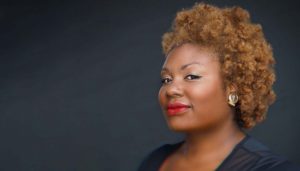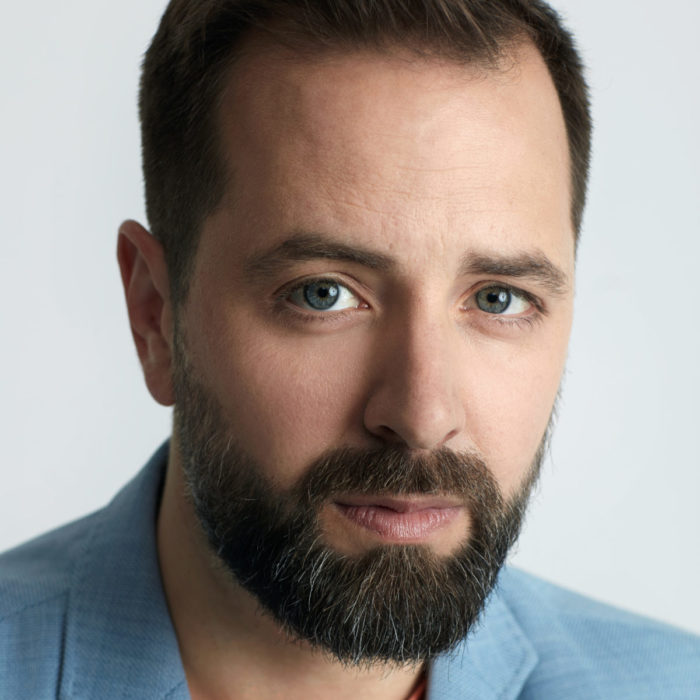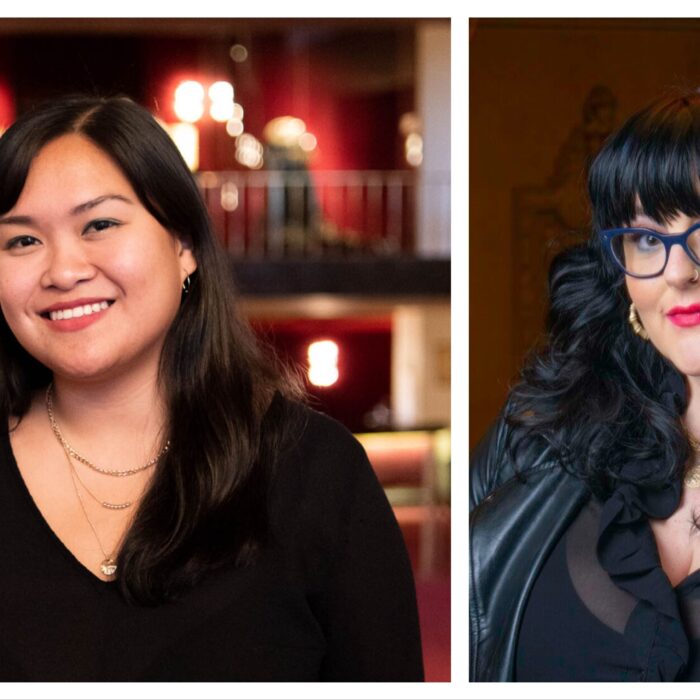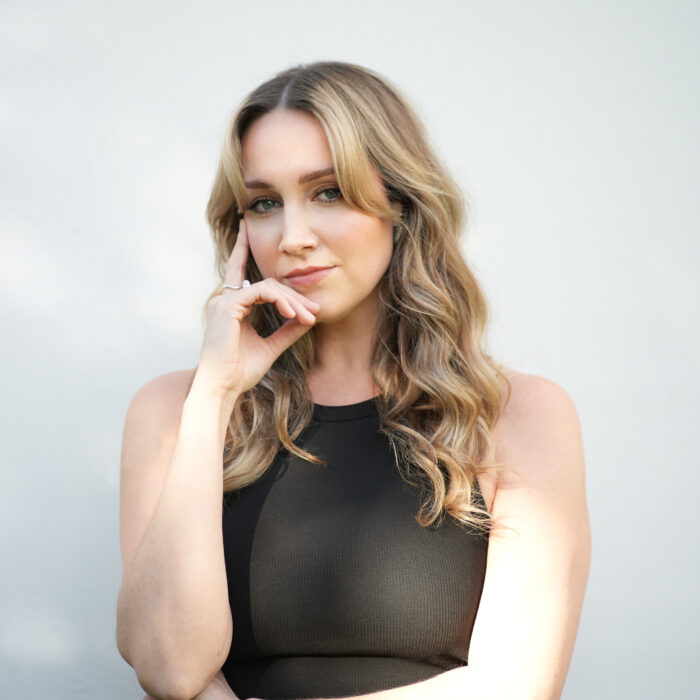
Q & A: Raehann Bryce-Davis on Music Video, Race Relations & Inclusivity
By Francisco SalazarIn March Raehann Bryce-Davis was in Los Angeles performing “Roberto Devereux” when the COVID-19 Pandemic struck and all performances were canceled. The world changed and Bryce-Davis was left without work.
The mezzo-soprano, who is one of today’s leading rising stars in the opera world, was forced to rethink her career like many other singers.
In the midst of the pandemic, massive protests broke out that also brought the black community together and Bryce-Davis used her creative energy and strength toward new activism. The result is a new music video using Donizetti’s “Roberto Devereux.”
Bryce-Davis spoke with OperaWire about the new music video, Black Lives Matter, and Opera’s Future.
OW: How are you doing during this time? How did you feel going into quarantine and having had so many cancelations?
Raehann Bryce-Davis: How am I doing… Well, I’m alive and healthy and grateful. My family is okay and my needs are met so I’m physically well. Every day is a constant battle to be motivated and inspired enough to create or learn music so every day has its own level of success.
I was pretty devastated when my last performance of “Roberto Devereux” was canceled at LA Opera, I had just had my debut on March 8 and my family was coming to the next performance on the 14th. On the morning of the 12th, I woke up to the news that the California governor had restricted crowds over 250 and immediately called my mom who was on her way to the airport in Texas and told her not to get on the plane. I think it was later that same day that I heard of the sudden passing of the incredible Luca Targetti who was my agent in Italy and a giant in opera. When everything was officially canceled I was grateful because it was necessary to save lives but still a devastating blow.
OW: How did you come up with the concept for the video and when did you realize that Donizetti’s music would connect so powerfully with all the social issues happening in this country? What does the text to this particular aria mean to you?
RBD: “All’afflitto e dolce il pianto” is Sara’s aria from “Roberto Devereux,” I had so much expectation built up around my next performance, so many things I wanted to try and do differently and experience but I never got the chance. As the pandemic wore on I started feeling desperate to create and decided to give myself my second performance.
At the time it was in the wake of the murders of George Floyd, Breonna Taylor, and Ahmaud Arbery and I was going to marches in Ft Worth and I debated very strongly whether I should be recording a protest song, then one day, in the midst of my frustration I realized that I could speak Sara’s words to my own experience. I was afflicted and tears had become my frequent sweet companions. Sara mourned her distant lover, I mourned for justice, equity, and opera that felt so far away.
OW: Tell me about the images that were chosen for the video?
RBD: The visuals were chosen by Jon Goff (a wonderful Dallas-based Black director, the Director of Photography for the piece) and I. He provided some of the protest footage and some of it was my personal footage from marches in Texas or New York. A few of my family members even make cameos.
OW: Tell me about the concept for the video and how did you come up with it?
RBD: The concept was very literal, no fairy dust. It’s a personal portrayal of my experience during this pandemic, riddled with anxiety over disease, police brutality, and financial/ emotional stability.
OW: Tell me about your collaboration with Esme Wong?
RBD: Esme is such a dear friend, an incredible artist, and a beautiful collaborator. I had a shoestring budget to make this project happen and she still agreed and drove over an hour to be there smiling, supportive, making consistently beautiful music at the recording session. I’m forever grateful to her and sound engineer George Miadis. Others also generously offered their assistance like Harold James, a Marc Jacobs European Ambassador and Allan Virgo, New York fashion designer who swam through about a cajillion screenshots of dresses that I sent them before we settled on the winner THE DAY of the shoot. Even the incredible house where we filmed was donated after I sent a desperate message via Airbnb to a wonderful Cedar Hill entrepreneur named Todd, who has also donated his space for music videos of famous rappers like 2Chainz. I’m also grateful to Hair and Makeup salons South Beach Beauty Bar and Lovely R “U” for making me feel glam on the big day.
OW: The final portion of the video is about your triumphs and archive footage of you triumphing. There is so much nostalgia and yet some positivity in many ways at the end of it. Why did you choose to end it like that way?
RBD: You know, I still don’t know how I feel about the ending. I wanted it to be vague. We, in 2020, don’t know what’s going to happen next. I claim a portion of the future of Opera, whatever it is, I look back with nostalgia but I look forward to innovation and this project to me was just that.
OW: Tell me how the death of George Floyd affected you and how did you react to all the protests?
RBD: There’s a constant anxiety or alertness that every Black person feels when someone in a police uniform approaches you and that’s true whether you’re a CEO of a Fortune 500 company, an opera diva, or a kid in a sweatshirt in Florida. The murder of George Floyd reminded us yet again, why that is.
I joined in the protests and witnessed as the charges against the police officers increased with the public pressure. In his case and in that of Ahmaud Arbery, it one of the first times in my life that felt the power of the people. I realized no matter who you are, no matter how big or small your career is, it’s your responsibility to use the power and the voice you have to bring about positive change.
OW: When opera companies also started to react, what was your impression, and what have you felt come from these discussions of race?
RBD: I was encouraged! So many essential conversations are happening and I pray that during this time that Black Lives Matter is ‘all the rage,’ we implement policies that will create lasting change. I’m encouraged by the programming of works by Black composers and the hiring of Black administrators, I hope that this continues.
I hope we do the work and find the qualified Black professionals that have been overlooked and the racial consultants that will hold our feet to the fire and ensure that we continue on the path towards an inclusive industry.
OW: Your video comes out on the heels of the shooting of Jacob Blake. In light of this latest tragedy, what do you hope this video sends to audiences and how do you think music can help heal?
RBD: This shooting of another Black man is devastating. I pray for Mr. Blake and for his family and the medical personnel taking care of him. I have friends and family members that are police officers trying to make the world a better place, but the excessive force utilized by police as an organization on Black bodies is, unfortunately, historic. When an organization was primarily organized to ensure the imprisonment and killing of Black bodies, we cannot be wholly surprised when they continue to accomplish their initial vision.
“The genesis of the modern police organization in the South is the “Slave Patrol” (Platt 1982). The first formal slave patrol was created in the Carolina colonies in 1704 (Reichel 1992).
In terms of what I hope to accomplish, I think primarily since we have spent so much time by ourselves, I created this video as a way to meaningfully connect. I spent so much of this pandemic far away from people who were suffering the way I was and this was my way to reach out to them. As we come together, I hope we are able to move forward in love, working towards a beautiful tomorrow full of art and inclusivity.
OW: During your time as an opera singer have you experienced any type of racism and what have you done to overcome it?
RBD: I come from a family of immigrants. I know that racism exists but I was always taught to keep my blinders on, put my head down, and get to work. It’s a common saying in the Black community that you have to work twice as hard to get half as far or you have to be twice as good to get half of what they have. I took this very seriously and hustled very hard during my young artist years to forge the career that I’m just starting to enjoy today. These sayings are unfortunately a reality for so many and studies show that there is truth in the words passed down to our generation.
So these days, I’m trying to grow, forgive myself more, trying to put down the yoke I’ve carried all of my life of being the sole representative of Black people since I’m so often the only one in the room, and I’m trying to work towards getting more Black people a seat at the table.
OW: What do you think the opera industry can do to change and create greater racial equality and inclusion?
RBD: Art is where we as a culture wrestle with our moral dilemmas. It’s where we get glimpses into the experiences of those that seem so different from us, it reminds us of our history and our common loves, joys, and values. We can only create meaningful and relevant art by having people from all backgrounds creating art. We need more diverse storytellers, that includes directors, conductors, designers, dramaturgs, and performers. We need BIPOC people on boards and in marketing departments that can speak up when a company is about to make a decision that is exclusionary and does not create an atmosphere of inclusivity.
What can the opera industry do? It can hire more Black people, qualified Black people, at every level. Many opera administrators say that they aren’t getting the applications that allow them to hire BIPOC on a larger scale, but I refer them to a fully functional method used in sports: Recruitment. Perhaps it may take more time to recruit or grow talent, but opera will continue to become less connected to a changing world if we do not address these issues. All of our survival depends on our creating art that is meaningful to our communities.
OW: Tell me about the two organizations that you are fundraising for and what they mean to you?
RBD: The Black Opera Alliance is an organization that is fighting for equity in opera and is currently fundraising to provide headshots and recordings to struggling Black artists, enabling them to overcome one of the largest inequities Black performers are facing in opera right now.
Arts Unlimited Southwest is a beautiful non-profit in Texas. It is a community arts center that offers musical training for kids of all ages and provides scholarships for underprivileged children, leveling the playing field for them in many ways as they grow up.
OW: How do you believe the opera world can evolve after this pandemic?
RBD: The pandemic has had the surprising effect of making opera less mystical for many people and therefore possibly more accessible. I think if we are wise we will continue to innovate and bring our lofty art form to the people where they are, addressing issues that are close to their hearts, both through world premieres and fresh interpretations of classics.


